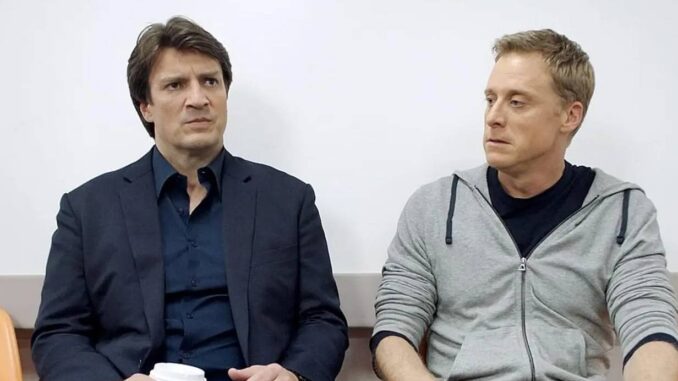
The vast landscape of television is populated by an endless procession of characters, some fleeting, others enduring. Among these, guest stars often arrive like meteors – brilliant, impactful, and then gone, leaving behind only the memory of their brief, intense light. Yet, every so often, an actor’s performance is so potent, so perfectly aligned with character and narrative, that their departure feels less like an end and more like an interruption. The mere whisper of their potential return becomes a cultural touchstone, illustrating not just a hope for future plotlines, but a profound testament to the power of a truly unforgettable portrayal.
Such is the case with Alan Tudyk and the persistent buzz around his possible reappearance in ABC's The Rookie. Tudyk, a chameleon of an actor known for his remarkable versatility – from the stoic sarcasm of K-2SO in Rogue One to the endearing alien antics of Resident Alien – has a knack for infusing even the most eccentric roles with a disarming humanity or a chilling depth. When he first graced The Rookie as the charming, highly intelligent, and utterly deranged Professor Chaucer, he did more than just play a villain; he sculpted a character who burrowed deep into the collective consciousness of the audience.
Chaucer was a master manipulator, a cult leader with a captivating smile and a philosophical bent that belied his heinous nature. Tudyk brought to the role a meticulous precision, every cadence of his voice, every subtle shift in his gaze, brimming with a quiet menace that was both alluring and terrifying. He wasn't a cartoonish villain; he was a mirror reflecting the insidious nature of charisma when wielded for dark purposes. His scenes with Nathan Fillion's John Nolan were electric – a battle of wits that felt genuinely high-stakes, even when the characters were merely exchanging pleasantries across a table. This intense, almost intimate dynamic is the first profound illustration of why his return is so eagerly anticipated: it speaks to the artistic alchemy that occurs when two talented actors elevate each other's performance, creating a memorable screen partnership that transcends the typical hero-villain dynamic.
The idea of Tudyk's return also powerfully illustrates the enduring appeal of the "uncontained" antagonist. Unlike villains who are definitively vanquished or brought to justice, Chaucer's fate was left tantalizingly ambiguous. He escaped, a phantom lingering at the edge of the heroes' periphery. This narrative choice, whether deliberate or serendipitous, fuels the "what if" scenarios that captivate fans. It’s a testament to the fact that sometimes, the most terrifying threats are those that are unseen but felt, those that lurk in the shadows, always capable of returning. The uncertainty surrounding Chaucer's whereabouts creates a narrative tension that no amount of typical episodic crime can fully replicate. His potential re-entry into the narrative would not just be a plot twist; it would be the re-ignition of a long-dormant existential threat, illustrating the long-game potential of compelling, unresolved villain arcs.
Furthermore, the discussion around Tudyk’s possible return illuminates the evolving relationship between television production and its audience. In an era dominated by social media and instant fan feedback, the collective longing for a character’s return becomes a powerful metric of their impact. When actors like Tudyk hint at their willingness to revisit a role, it’s not merely industry gossip; it’s a direct acknowledgment of this audience engagement. It illustrates how a truly resonant performance can transcend the confines of its initial airdate, creating a demand that producers, keenly attuned to viewership, cannot easily ignore. It’s a validation of the creative choices that birthed the character, and a powerful indicator of the lasting impression left by the actor's craft.
In essence, the hope for Alan Tudyk’s return to The Rookie is far more than just a desire to see a favorite actor back on screen, or a simple craving for more drama. It is an illustrative essay in itself, demonstrating the profound impact of a meticulously crafted performance, the enduring power of a cunningly ambiguous villain, and the vibrant, interactive ecosystem that exists between modern television shows and their devoted audience. It shows us that some guest stars don't just visit; they leave behind a part of themselves, a shadow that fans are always eager to see step back into the light.